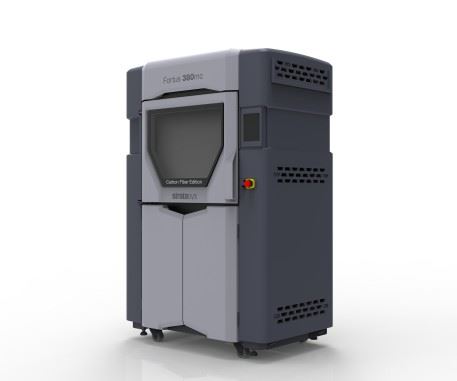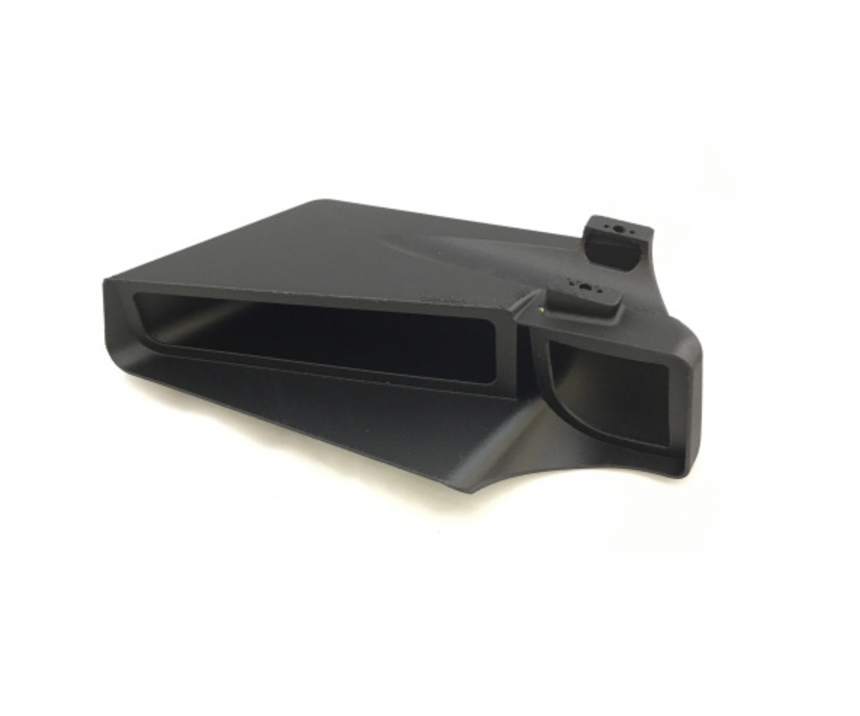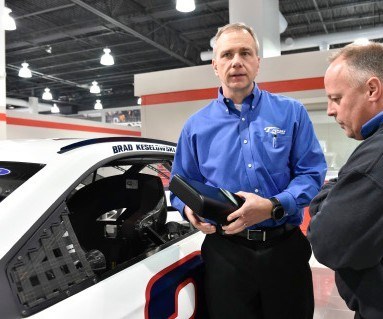Stratasys offers industrial 3D printer dedicated to carbon-fiber-filled Nylon 12
The Fortus 380mc Carbon Fiber Edition is an industrial quality system that is being offered at $70,000 in the US.
Stratasys (Eden Prairie, MN, US) announced on Aug. 20 it is now shipping an affordably priced additive manufacturing system dedicated for carbon-fiber-filled Nylon 12. The Fortus 380mc Carbon Fiber Edition is an industrial quality system that is being offered at $70,000 in the US. It began shipping last week.
Stratasys was one of the first to offer a carbon fiber filled composite for additive, but it previously offered the material only on high-end production 3D printers in the $200K-$350K range.
“For many years, the additive manufacturing industry has seen a need for a diversity of machines that produce parts in high-strength composite materials,” says Terry Wohlers of Wohlers Associates, an additive manufacturing industry consultancy. “I'm hopeful the newest machine from Stratasys will help to meet this need by offering strong parts in carbon fiber and Nylon 12.”
Similar to a typical injection molded carbon fiber reinforced plastic part, Stratasys Nylon 12CF is 35% chopped carbon fiber by weight, and it reportedly exhibits the highest stiffness-to-weight ratio of any FDM or FFF 3D printed part.
The Fortus 380mc CFE is said to produce parts with repeatable dimensional accuracy, and the parts reportedly do not exhibit appreciable warpage or shrinkage and will hold to a tight tolerance. According to Stratasys, Nylon 12CF is up to four times stronger than alternative materials in the X and Y axis, and it will maintain its mechanical properties at a 40% higher temperature. The Fortus 380mc CFE is said between two and five times faster than similar carbon-fiber-based 3D printers.
The Fortus 380mc CFE builds parts in 0.010 in. (0.254 mm) layer thickness. The system is also compatible with ASA thermoplastic, for which is can build in either 0.010 or .005 in. (0.127 mm) layer thicknesses. The 3D printer’s build chamber measures 14 x 12 x 12 in. (355 x 305 x 305 mm). It offers water-soluble support material removal. This in turn allows the creation of fine and intricate geometries, which wouldn’t be possible without the soluble support material, because the fine features could be destroyed during cleaning, or intricate geometries might be too laborious or impossible to remove the support material.
Stratasys expects the quickest adopters of its Fortus 380mc CFE 3D Printer to be those making tooling and fixtures and those in industries that include Automotive; Recreational Sporting Equipment; Marine; Orthosis and Prosthesis; Defense; Aerospace; Medical Equipment; Oil and Gas.
Related Content
-
Welding is not bonding
Discussion of the issues in our understanding of thermoplastic composite welded structures and certification of the latest materials and welding technologies for future airframes.
-
PEEK vs. PEKK vs. PAEK and continuous compression molding
Suppliers of thermoplastics and carbon fiber chime in regarding PEEK vs. PEKK, and now PAEK, as well as in-situ consolidation — the supply chain for thermoplastic tape composites continues to evolve.
-
Cryo-compressed hydrogen, the best solution for storage and refueling stations?
Cryomotive’s CRYOGAS solution claims the highest storage density, lowest refueling cost and widest operating range without H2 losses while using one-fifth the carbon fiber required in compressed gas tanks.



















